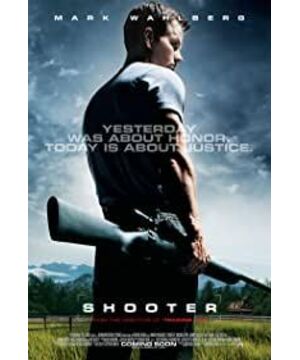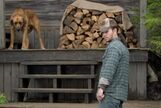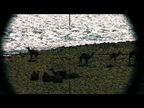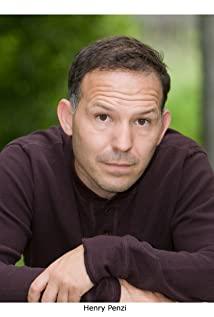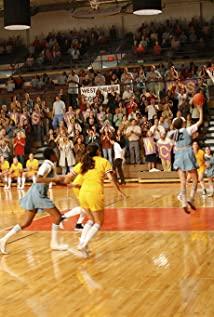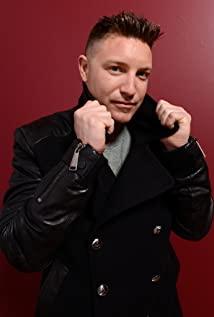In Guo Jing's Hamlet-style crisis
Wang Yi
's "The Legend of the Condor Heroes", Guo Jing went out of the rivers and lakes, and suffered great changes in one year. The five mentors threw the bodies of Peach Blossom Island, Genghis Khan wanted to invade the south, and his mother Li Ping committed suicide in front of Guo Jing to clarify her aspirations. Guo Jing went back to the south of the horse, and there was a chaos of soldiers and horses along the way. Guo Jing wandered around, not knowing where he came from or where he was going. All sorts of incidents came one after another for a while, just as Hamlet fell into a question that could not be relieved after learning the truth of his uncle killing his brother and marrying his sister-in-law:
——To be or not to be? That'sa question.
Guo Jing had to stop and temporarily withdraw from the game with the tortoise like a rabbit to defrag himself.
"What's the use of practicing martial arts? I can't even keep my mother."
"I want to be a good person, but who has made me happy?"
"Wanyan Honglie is naturally a bad person, but what about Genghis Khan?"
"Sister Mu Nianci is Good man, why do you love Yang Kang so deeply?"
"How could I kill someone else's son and make her mother cry? But, should he be allowed to kill me in the Song Dynasty?
" It's just hurting people. But what would I do if I didn't learn martial arts? Why am I alive in this world?"
"Is it better to live, or to die sooner? If you live, you will be troubled now, and will be even more troubled in the future. If I die, why did my mother give birth to me in the first place?"
"Is there any law in the world? Does God give birth to eyes?"
Are you saying Guo Jing is stupid? How can these questions be thought out without wisdom. Even Qiu Chuji, who had been practicing Taoism for decades, could not enlighten him. Guo Jing replied: "It is difficult to practice martial arts to the level of four seniors, but even so, what good is it for others and myself?" Qiu Chuji was immediately stunned, and he only asked him to find Zhou Botong.
Han Fei listed the ranger as one of the five beetles, because he was not used to these people in the rivers and lakes being banned by force and using lynching. One of the goals of the modern rule of law is to reduce and eliminate private remedies and to incorporate good and evil into a visible procedure.
The knights are separated from the patriarchal society, relying on their parents at home and friends when they go out. Its value orientation takes "loyalty and righteousness" as the first and filial piety as the last, which is very different from the values of mainstream society. Murder the living, all in one thought. In a Jianghu society that is no longer based on filial piety, there is no sympathy for killing people. Li Kui's mother was eaten by a tiger and went back to the mountain to talk. The brothers only asked about the details of killing the tiger. Of course, Li Kui probably didn't need comfort. Every time he robbed the dharma field, he was like a festival, killing anyone he saw, regardless of the military or civilians. In addition, there is no absolute standard for good and evil derived from religion, and the issue of killing or not killing, every knight has to rely on his free heart to prove it. Black and white, who kills who doesn't kill, the heroes usually have a clear line in their hearts, and there is no doubt. Therefore, in such an environment that advocates violence, Guo Jing was able to be peaceful and clear. In comparison, Huang Rong's little cleverness was nothing.
Later, when he went to Huashan, he saw that Qiu Chuji was besieged by Sha Tongtian and others, and the situation was in critical condition. Guo Jing was at the side of the battle between heaven and man, and his heart was miserable: "If Qiu Daochang was killed by Peng Lianhu and others, wouldn't it be all my fault? But if he stepped forward to help and shot Peng Lianhu and others down the mountain, would it be right?"
At this time, Guo Jing had already jumped out of the Three Realms, not in the Five Elements, and entered a state of forgetting things and me. He walked farther and farther, slowly ignoring the sound of swords coming together, leaning on the stone alone, dazed.
The real question in Guo Jing's mind at this time is, who has the right to kill people? Who gave the knights the qualifications to be judges and executioners? Is violence itself a good or an evil?
Qiu Chuji and Sha Tongtian, what is right and what is wrong?
- God, what should I do?
The appearance of Hong Qigong finally rescued Guo Jing from the Hamlet-style crisis.
Qiu Qianren did a lot of evil and was besieged by the crowd in Mount Hua. Seeing that she was as vicious as the prostitute of Nazareth, and no Jesus came out to ask questions, he laughed, jumped out of the stage and asked the crowd: "Speaking of right and wrong, good and evil, hehe, Qiu Qianren. If you are alone here, whoever has never killed anyone or committed evil in his life, please come up and do it!"
Master Yideng sighed and stepped back first. Everyone else asked themselves and felt ashamed. Fifty steps laugh a hundred steps, who has the absolute moral superiority and authority to throw stones at him?
At this time, Hong Qigong, as a high moral standard on the rivers and lakes, descended from the sky. The following words were loud and righteous:
"The old beggar has killed 231 people in his life, and these 231 people are all villains. If they are not corrupt officials, local tyrants and bullies, they are treacherous and wicked. The lucky people are always greedy and gluttonous, but they have never killed a good person in their life. Qiu Qianren, you are the 232nd!"
No one dared to have an opinion, even Qiu Qianren was mad at it.
Hong Qigong, who killed 231 people, said that he had a clear conscience and never killed one in his life. Do you believe it? are you okay? Anyway, I didn't believe it in the first place. I also admit I can't.
When a mortal has the power to kill others, and has the right to pronounce judgments in the name of good and evil and absolute truth, it is the most dangerous. Jianghu is one of the easiest places to inflate oneself. Holding a sharp sword in hand is equivalent to mouthing the heavenly constitution. This kind of savior mentality of the knights only comes from the excellence of martial arts, and there is no higher ideology to crown this absolute authority. Therefore, it appears to be more unreasonable than the authority under the monarchy. The secular monarch at least has the argument of "legality", such as Mencius's "the Son of Heaven is ordered by Heaven", and Hu Ke's "God grants the monarchy".
"The power to rule over mankind is a terrible power". This is what Robespierre said in the early days of the Revolution. The Mr. Luo therefore called for the removal of the ruler's power to kill, saying: When all human power is used against one person, the death penalty is extremely unjust.
At that time, Robespierre was like the righteous and awe-inspiring Hong Qigong. But in the bloody storm that followed, Mr. Luo shouted frantically: Kill Louis XVI! Kill the queen! After Jacobin came to power, Luo became the de facto supreme leader of France. No matter how admirable his personal qualities and lofty goals were, a Hong Qigong could easily become a murderous undefeated Orient.
But Guo Jing was completely convinced by these words. My heart suddenly became clear, and I thought: "It turns out that as long as you don't kill a good person, you have a clear conscience. Look at how awe-inspiring Master Qiu Qianren was when he criticized him. As long as I use my martial arts for righteousness and goodness, why should I abandon them and forget them."
Hong Qigong It became the life-saving straw that Guo Jing accidentally caught in the crisis of belief. His wisdom roots have ended here. He completely ignored the words and deeds of Master Yideng when Qiu Qianren regretted jumping off the cliff, and also diverted the question he raised.
If Guo Jing and Hong Qigong represent an idealistic force, Jin Yong's later works gradually tend to be skeptical. Finally arrived at the nihilism of "Lu Ding Ji", and martial arts can no longer be written.
Guo Jing regained his faith, and gradually established the ultimate goal of "the great hero, serving the country and the people". The two main beliefs that constituted this ultimate goal, the righteousness of the nation and the distinction between righteousness and evil, were found in the later two heroes. The absolute confidence of the simple creed was finally completely shattered by the complex reality. These two heroes are Qiao Feng from Khitan and Linghu Chong from Xiaoao Jianghu.
Linghu Chong's Wisdom Root is the highest. The reason why Linghu Chong is said to be a real hermit, and the only one who is truly proud of the world, is that he has completely degraded Guo Jing's ultimate goal. He eventually jumped out of all reason to kill. He also has the deepest doubts about worldly values. The question that Guo Jing raised in Lingtai's Qingming moment did not get a final answer until Linghu Chong appeared.
Linghu Chong is an individualist above the rivers and lakes. He is closer to Hamlet in nature. Although his path to liberation was thoroughly oriental. When talking about the historical process of "from identity to contract", Maine said: "In the beginning, people were not regarded as an individual, but were always regarded as members of a specific group." In Jin Yong's writings, we see that only Linghu Chong, in spirit, appeared as an individual, not as a member of a group. He is more intrinsically destroying the utopia of Jianghu than Qiao Feng.
In a world of individualism and post-Jin Yong era, characters like Hong Qigong should not have appeared in Gu Long's pen. But the knight Yang Fan ("The Big Man") is another Robespierre who is obsessed on the road to utopia. Tian Sisi leaves home to find the big man in her mind, but falls in love with Yang Fan, a big-headed ghost who is not very good-looking. In the end, the mystery was revealed. This Yang Fan's ordinary appearance was nothing but his appearance. He turned out to be the real big man and the head of the secret organization "Shanliu". What kind of secret organization is this? It is a group of hot-blooded young people who go to assassinate the "bad guys" above the rivers and lakes with justice. They hope that the rivers and lakes will become better and become a utopia.
They call this kind of thing "hoeing".
Yang Fan's moral superiority and absolute self-confidence make this martial arts novel my least favorite and the most unforgivable of Gu Long's middle and late works. Because he completely betrayed a liberal arena, betrayed Gu Long's own martial arts spirit, and even returned to the starting point of Jin Yong. Yang Fan was inferior to Guo Jing, and he didn't even have a moment of Qingming in Lingtai. The deaths of so many people never plunged him into a crisis of faith, but instead became a determined and ruthless fundamentalist terrorist.
One day, if Yang Fan can also plausibly say: I have killed 231 people in my life, and these 231 people are all villains. people. I have never killed a good person in my life, Wang Yi, you are the 232nd!
Judges, my death knell tolls for you.
View more about Shooter reviews


